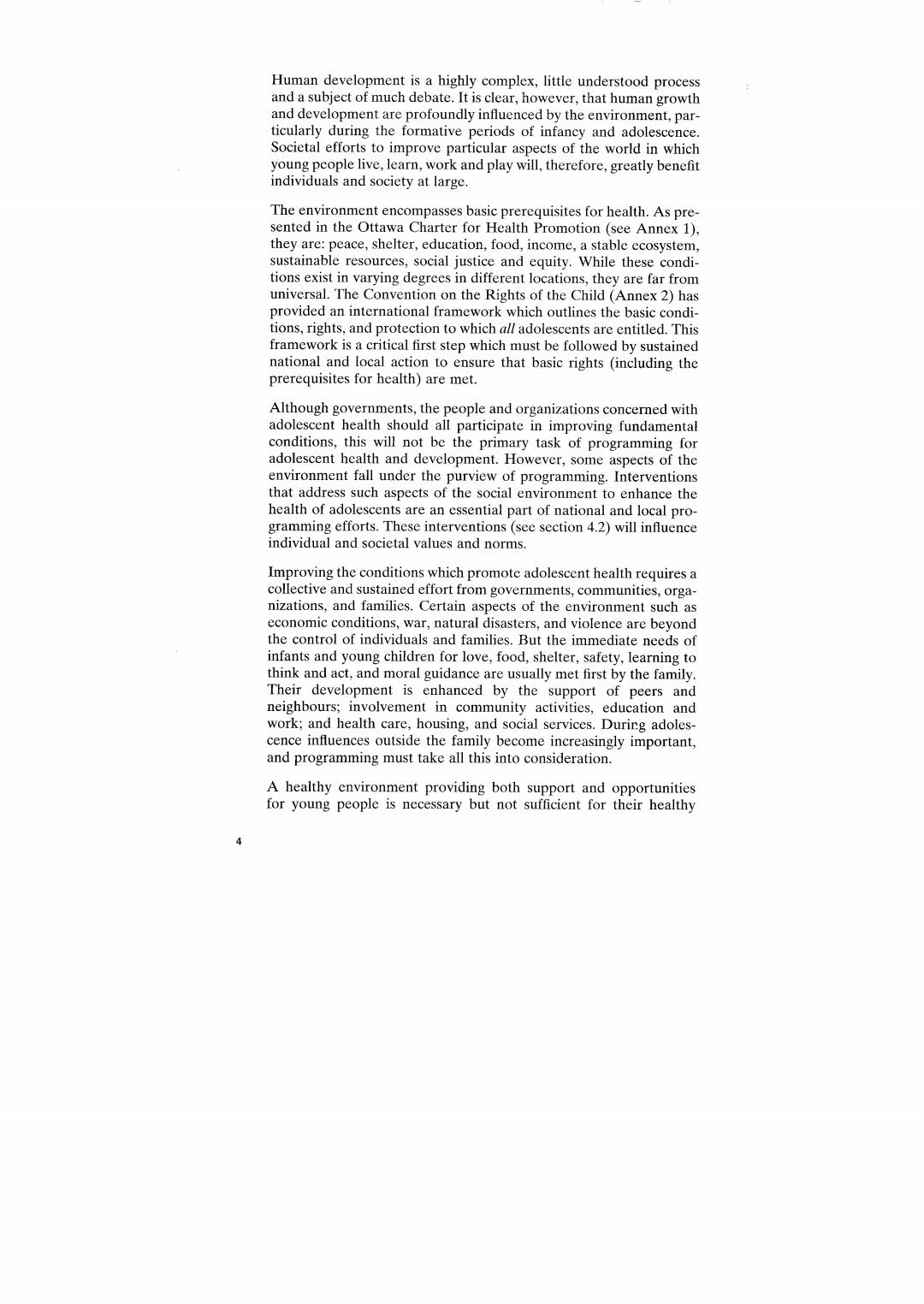正在加载图片...

Human development is a highly complex,little understood process and a subject of much debate.It is clear,however,that human growth and development are profoundly influenced by the environment,par- ticularly during the formative periods of infancy and adolescence Societal efforts to improve particular aspects of the world in which young people live,learn,work and play will,therefore,greatly benefit individuals and society at large. The environment encompasses basic prerequisites for health.As pre- sented in the Ottawa Charter for Health Promotion (see Annex 1), they are:peace,shelter,education,food,income,a stable ecosystem. sustainable resources,social justice and equity.While these condi- tions exist in varying degrees in different locations,they are far from universal.The Convention on the Rights of the Child (Annex 2)has provided an international framework which outlines the basic condi- tions,rights,and protection to which all adolescents are entitled.This framework is a critical first step which must be followed by sustained national and local action to ensure that basic rights (including the prerequisites for health)are met. Although governments,the people and organizations concerned with adolescent health should all participate in improving fundamental conditions,this will not be the primary task of programming for adolescent health and development.However,some aspects of the environment fall under the purview of programming.Interventions that address such aspects of the social environment to enhance the health of adolescents are an essential part of national and local pro- gramming efforts.These interventions (see section 4.2)will influence individual and societal values and norms. Improving the conditions which promote adolescent health requires a collective and sustained effort from governments,communities,orga- nizations,and families.Certain aspects of the environment such as economic conditions,war,natural disasters,and violence are beyond the control of individuals and families.But the immediate needs of infants and young children for love,food,shelter,safety,learning to think and act,and moral guidance are usually met first by the family Their development is enhanced by the support of peers and neighbours;involvement in community activities,education and work;and health care,housing,and social services.Durirg adoles- cence influences outside the family become increasingly important, and programming must take all this into consideration. A healthy environment providing both support and opportunities for young people is necessary but not sufficient for their healthy